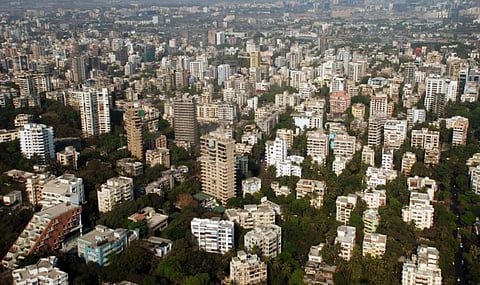Residents fret over Mumbai’s shrinking open spaces
They are looking at ways to stop civic body from implementing controversial policy

Mumbai: Every Mumbai resident, concerned with the dwindling open spaces in Mumbai and taken aback by the controversial Open Spaces policy of the country’s richest civic body, can now take a breather since Chief Minister Devendra Fadnavis has intervened to put the policy on hold.
The Brihanmumbai Municipal Corporation (BMC), which does not seem to have the money or initiative to manage the few parks and grounds that still exist in this teeming metropolis, came up with a policy of adopting open grounds by anyone who can maintain them—in fact a step described as privatisation.
Already, activists, urban experts and ordinary people are looking at ways to stop the civic body from going ahead with its new controversial policy, even though Fadnavis has put it on hold and has said that “Mumbai residents have several doubts in their minds about the open spaces policy. They fear that open spaces could get usurped because of this policy.”
Despite the chief minister’s intervention, activists will go ahead to file a public interest litigation (PIL) by the end of this month and hold a public meeting on January 27 since “we can’t rely on politicians. We can’t take a chance,” said Anandini Thakoor who heads the H-West Federation, comprising residents of Bandra, Khar and Santacruz in the western suburbs. The activists, however, laud Fadnavis for ordering the BMC to take back 230 open spaces whose lease have expired across the city. Fadnavis has also asked the civic chief Ajoy Mehta to review the policy and submit a report.
According to the new policy passed by the majority of Shiv Sena as well as BJP corporators of the BMC on January 13, open spaces can be allotted only on an adoption basis and no construction on the plots will be allowed unlike in the past when BMC land was handed out under the earlier ‘caretaker policy’. This was stayed in 2007 by the then Congress-NCP government following outrage from the public over BMC land being taken over by clubs run by politicians.
The changed policy of the BMC still allowed over 1,500 plots of land reserved for parks, playgrounds and recreation grounds to be adopted by corporates, individuals, NGOs and residents’ associations.
Thakoor said, “We can cite any number of open spaces being misused by politicians and business houses, which is not at all right at all since the city is so short on open spaces. These are the lungs of the city and we have already lost many open grounds.
“Where will our children and grandchildren play?” she asked.
Whilst several clubs have taken over parts of the famed 140,000 sq yard Shivaji Park, the swanky MIG (middle income group) Cricket Club in Bandra East, visited by Sachin Tendulkar regularly, is a perfect example of BMC land being completely lost to a club given on lease two decades ago. The same goes for Matoshree Club in Jogeshwari, Kamla Vihar Club in Borivili or the Poisar gymkhana which are on BMC land but hold several events that fetch huge amounts of money daily.
Thakoor added, “At Khar gymkhana, our residents’ association managed to put up a fight and stop the functions being held on tennis courts and play grounds.”
Right to Information (RTI) expert Shailesh Gandhi, who Thakoor said is the prime mover in their campaign against the BMC policy, said, “This is not an open space policy, but kidnapping policy.”
According to him and others, there is no reason why open spaces should be handed out to private parties when the cost of maintenance of existing grounds would be around Rs2 billion (Dh111.1 million), which is not a big amount for the cash-rich civic body.
BJP leader Ashish Shelar, in whom activists have found support, has been invited by the H West Federation for a public meeting on January 27 when corporators across party lines, experts and activists will put forth their points of view and build a strong case against the BMC’s move.



